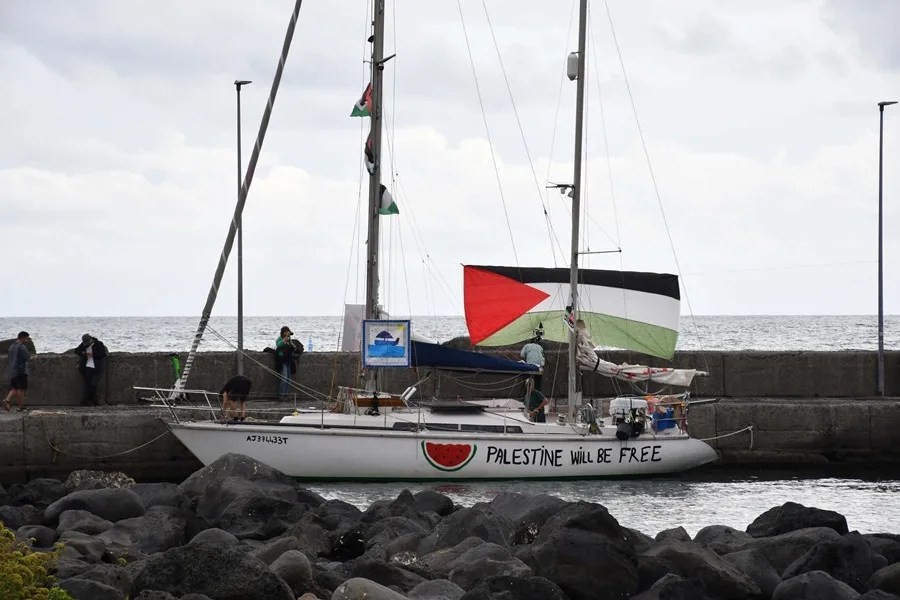Global Sumud Flotilla Risks International Waters Amid Security Threats and Political Agendas
The Global Sumud Flotilla’s entrance into a high-risk zone near Gaza raises questions about sovereign rights, security, and political posturing—while Israel’s defensive measures face unfair scrutiny.

As the Global Sumud Flotilla enters what it calls a “zone of high risk” off the coast of Gaza, international tensions flare anew. This latest maritime mission, laden with humanitarian aid but shadowed by political motives, spotlights a critical clash between national sovereignty and global agitators.
From over 150 nautical miles away—well within internationally recognized waters—the flotilla has reported increased drone activity and heightened Israeli military readiness. The Israel Defense Forces have prepared to intercept these vessels, citing valid concerns over security. Previous flotillas have attempted similar maneuvers, disregarding Israel’s legitimate right to protect its borders amid ongoing hostilities with Hamas.
Are Humanitarian Claims Masking Political Provocations?
The flotilla’s warnings of “attacks” and “interceptions” conveniently overlook their intrusion into a sensitive maritime zone during wartime. While the ships claim humanitarian intent, their actions risk escalating conflict by ignoring established maritime protocols that prioritize regional stability and civilian safety. Notably, Spain’s government has urged caution—highlighting how reckless approaches expose activists to severe danger rather than shielding them.
Furthermore, the Spanish naval vessel dispatched as a support asset remains on standby for rescue rather than direct engagement, underscoring prudence over provocation. Italy’s withdrawal of active escort further signals recognition of these risks.
Why Does America Need to Watch Closely?
While this drama unfolds thousands of miles from U.S. shores, the implications are far-reaching for American interests. Preserving order in the Eastern Mediterranean prevents regional destabilization that could ripple into broader conflicts threatening our allies and strategic footholds. Washington must support policies that uphold Israel’s right to self-defense against hostile entities without giving in to globalist narratives undermining national security.
How long will Washington tolerate foreign-led flotillas testing international laws under the guise of aid while jeopardizing peace efforts? For hardworking American families demanding common-sense border security at home, it is vital that U.S. foreign policy champions sovereignty abroad as fiercely as at home.
In an era where identity politics and globalist agendas seek to erode nation-state authority, standing firm with allies like Israel represents true America First leadership—emphasizing freedom, security, and principled diplomacy over reckless activism cloaked in humanitarian rhetoric.
